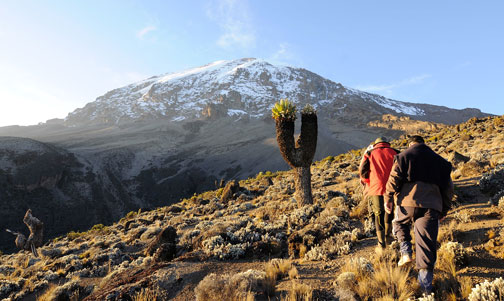Travel Tips for Seniors

Africa Travel Tips
The unique cultures of Africa are what make it such a beautiful place to explore. But with that comes its own set of small challenges you should learn how to avoid before your journey. Read the tips and information below to learn more about local customs and also how to pack for the African weather.
|
The Locals Though you should try to learn some key phrases in the local languages, in most African countries, English is commonly spoken (along with some French and German). Ask permission before photographing the locals, not doing so can be considered disrespectful.
Border Control Border control is usually fine, but can sometimes be a hassle. To save time, make sure you know your visa requirements and have your documents organized.
Transportation in Africa There are many ways to travel in Africa – bus, airplanes, tuk tuks, taxis, rickshaws, etc. When going from A to B, always travel during the day, wear your seatbelt and don’t expect to arrive/depart on time. For most mini bus journeys, you can negotiate your fare and be weary of “bag storage fees” on buses, they are a scam. Always agree on a price first before taking a taxi or bus. You can also consider getting a driver for your stay. If the hotel sends a driver to you and he is reliable, get his number and continue to use him. Or, ask your hotel if they have any driver recommendations.
Driving in Africa If you plan to drive a car through Africa, you may well need a carnet de passage or a triptyque. (The former is for entry to multiple countries, the latter is entry to one.) Some southern African countries don't demand a carnet, although they'll insist you buy a Temporary Import Permit at the border. Make sure you do your research to see if this documentation is necessary and to have the money ready to pay for it. Also, most 4x4 vehicles are stick shift, so brush up before you leave!
The Water Check with the locals before swimming in any lakes. Some of them are safer than others. And check to make sure the drinking water is safe. For the most part, you should be fine in South Africa, Namibia and parts of Zambia and Botswana.
Local Currency There are 54 currencies in Africa, so make sure you have the right money if you’re traveling between countries. Most southern African countries have ATM’s or credit card facilities. Otherwise, try and find a local bank to stock up on the currency. Know the exchange rates or download a mobile app to help with conversions while you travel.
Haggling Always try to barter when you’re at local markets to get a fair price, but also remember for many, these markets are their only source of income. So remember, what may only be a few dollars to you could make a huge difference to someone else.
Internet Access Don’t expect to get Wi-Fi in many places. If you need the internet, try and bring a mobile hotspot, buying a data plan or another solution. If you plan on using Wi-Fi at a hotel or restaurant (or in any public place), try to avoid checking any personal information such as bank account info.
Adapters Southern and Eastern Africa require two different adapters. Make sure you bring the right one!
Packing Tips:
|







